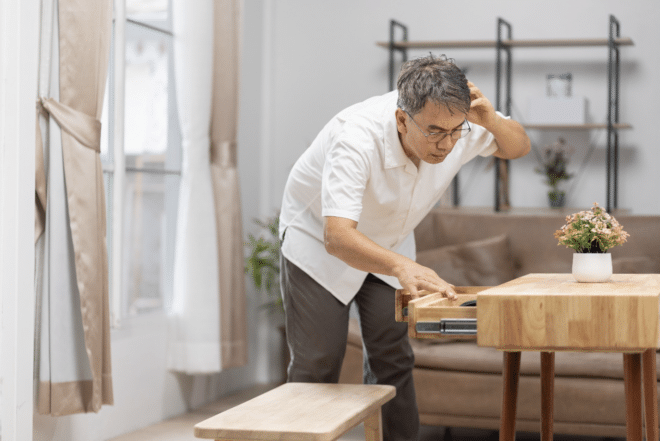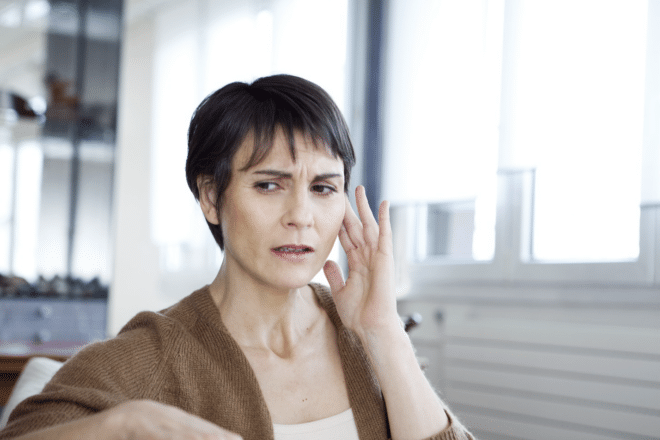You’re supposed to wear your hearing aids every day. But before you recycle your milk jugs, you’re supposed to wash them out too. We don’t always do what we’re supposed to. So yeah, you forget to take your hearing aids out of their storage container now and then. You might even forget to use it for more than one day.
That isn’t a really good idea. Because when you don’t wear your hearing aids numerous things happen and some things already happening get worse. And most of them, honestly, aren’t good.
Consequences of Forgetting to Use Your Hearing Aids
Much of what occurs when you fail to use your hearing aids will affect both your hearing health and your social life, each with varying levels of severity and intensity. The effects and repercussions of neglecting to use your hearing aids could include the following.
Your Hearing Will Continue to Diminish
Hearing aids are remarkable devices. They increase your ability to hear and help keep your auditory complex (the region of the brain that interprets sound) working efficiently.
You may damage your hearing even more if, instead of using your hearing aids, you start cranking up the volume on your devices even higher than they already are. Even if you aren’t raising the volume, the lack of sensory input contributes to problems with your brain. (It actually shrinks.) So if you don’t wear your hearing aids, your hearing will most likely keep getting worse (so you’ll need even more powerful hearing aids in the near future).
Social Engagement Will Become More Difficult (And Less Frequent)
You know when you go to the market and you get into a short conversation with the cashier? They’re pleasant, we think. In a world dominated by technology, these little talks are a touch of humanity.
When you don’t use your hearing aids, these basic social interactions can quickly become a lot more challenging. You repeatedly miss parts of the conversation and have to ask people to repeat themselves. Over and over. And that’s when the conversation becomes really awkward. That may not sound serious but every time a situation like this takes place, you will tend to retreat socially more and more. And that can cause even bigger issues.
Mental Decline And Hearing Aids
Your brain doesn’t get close to as much exercise when you isolate yourself. Think about how revitalized (or exhausted) you can feel after a good chat or an enjoyable evening dinner with your family. Certain cognitive functions can begin to decline or decline faster without this exercise. This could mean:
- Balance troubles
- Declines in energy or productivity
- Depression
- Memory problems
But that’s not the entire picture. Because there are particular parts of your brain and nervous system that need to hear sounds. Without stimulation, certain nerves will start to weaken, and your auditory complex starts to atrophy. This can lead to an even more accelerated mental decline (or, even in the best-case scenario, make adapting to your hearing aids even more challenging).
Hearing aids keep your brain engaged, stimulated, and happy (more or less).
Loss of Independence
It’s not unusual, as you get older, to need a little more help. Perhaps you ask a family member to go to the store for you or a neighbor to do some yard work. If you aren’t wearing your hearing aid, you could be expediting the loss of independence that frequently accompanies aging.
When you don’t wear your hearing aids, it can rapidly become harder to answer the phone or talk with your neighbor. It’s possible that you will miss important alerts. Perhaps you don’t hear your cat meowing for food at night or your dog barking at someone ringing your doorbell.
Is There Any Solution?
Using a hearing aid is not going to solve all of life’s issues, no matter how technologically inventive those little gadgets get. But they will solve a lot of the issues associated with not using your hearing aids.
If you’re having problems with your hearing aids or if they’re not comfortable, that’s one thing (and you should speak with us about getting solutions to those specific problems).
But if you’re looking for reasons to avoid using your hearing aids, if you’re just leaving them in the nightstand drawer, it’s worth taking some time to think about what may be gained by wearing them… and what might happen if you don’t wear your hearing aids.
References
https://www.hopkinsmedicine.org/otolaryngology/specialty_areas/hearing/faq.html
https://www.webmd.com/brain/news/20140128/hearing-loss-tied-to-faster-brain-shrinkage-with-age
https://www.apa.org/monitor/2019/05/ce-corner-isolation



